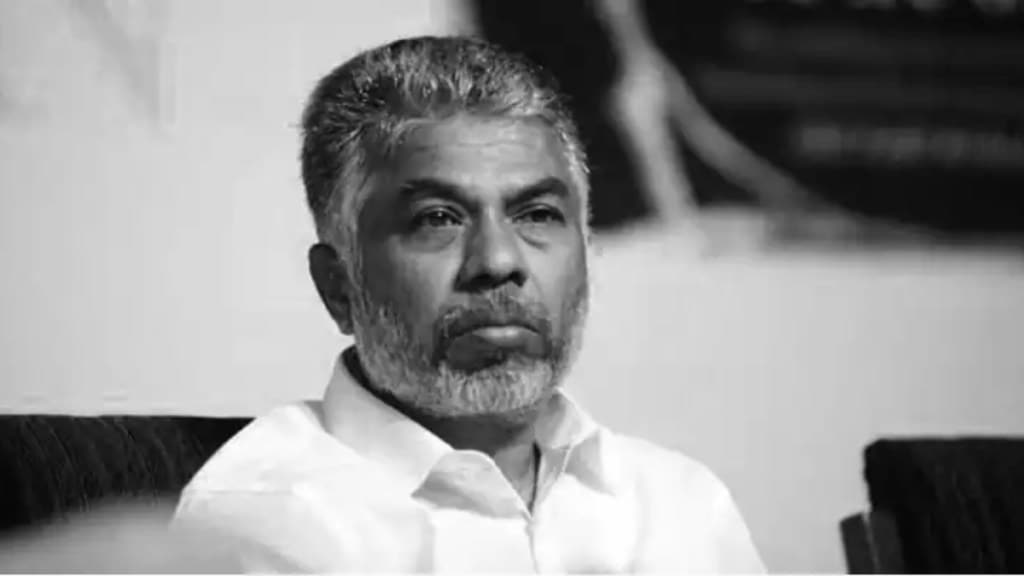Indian writer Perumal Murugan won the JCB Prize for Literature this year for Fire Bird, which is an English translation by Janani Kannan of his 2012 Tamil novel Aalandapatchi. In 2016, the author and his family was forced to leave his native town in Namakkal district of Tamil Nadu, following a campaign of protests against his 2010 novel One Part Woman. Facing criminal charges for hurting religious sentiments, Murugan, who taught Tamil literature at a college , moved to Chennai to fight the case in the Madras High Court. In Chennai, he soon shocked the literary world by announcing his decision to give up writing. Several months later, the High Court ruled in his favour, dismissing the charges levied against the writer. Murugan, who made his return with the 2018 novel Poonachi: Or the Story of a Black Goat, has not looked back since. Back from his self-imposed literary exile, he became more prolific in the number and subject of his works. Murugan’s work has garnered critical acclaim that it deserves and the JCB Prize is a testament to his literary prowess. Murugan speaks with the Financial Express about his journey as a writer, on democracy and freedom of expression and what the new honour means to him and Indian languages and translations.
Edited excerpts:
You were on the International Booker Prize longlist in March this year and now you have just won the JCB Prize for Literature. How significant is this honour for you?
The JCB Prize for Literature was established in 2018 and my novel, Poonachi, appeared on the shortlist in its first year. My publishers Kalachuvadu and Westland Books, as well as myself, had looked forward to winning, but it didn’t take home the award. Later, Trial by Silence and A Lonely Harvest were both longlisted for in 2020. We experienced a little anticipation even that year. But I didn’t get it. For the third year in a row, I had absolutely no expectation of winning any prizes. So I am overjoyed to have received this surprise prize. We were especially pleased to see a Tamil novel receive this prestigious award. Sanskrit and Tamil are both considered India’s classical languages. However, Sanskrit is no longer a spoken language. Despite the fact that Tamil is still a spoken language and has a vibrant contemporary literary scene, I see this prize as a celebration of the Tamil language.
How important is translation from India’s regional languages to English?
I do not accept the coinage of the word ‘regional language’. We must call Tamil, Malayalam, Kannada, Punjabi, and other languages ‘Indian languages’ only. When you say ‘regional language’, automatically a question will arise: Which language is the ‘Indian language’? Is it English or Hindi? Hence, we must bring Indian languages into the whole concept. For the past more than 15 years, the modern literary milieu of these ‘Indian languages’ has paved the way for good translation globally. Since its establishment, three Malayalam writers – M Mukundan, S Hareesh and Benyamin – have won the JCB Prize. This recognition is possible only when their work in Indian languages is translated into English. So, translation plays an important role. Literature in our languages should not stay within our state or region. It must travel outside. Then only the world will know. Global attention is sought when these works are translated into foreign languages. Therefore, I feel that translation plays a vital role in taking good literature worldwide.
In 2016, your novel One Part Woman faced protests that forced you to quit writing in 2016. You wrote Poonachi two years later. How do you compare your literary career before and after Poonachi, especially when choosing subjects for your work?
Before Poonachi, that is till 2016, my writings were mostly based on life in rural areas. Poonachi is also partially based on rural life. After that, I wrote Estuary. Now I have written a novel that is based on the life of the middle class. Even now, I have little hesitation or fear about freedom of expression. I keep trying new things, new angles, and new spaces in my writing and my writings are not like those before. So, there is a difference before and after 2016.
In the present times, there are many issues prevailing in the social and political arena. How do you handle these issues as a writer?
The freedom a writer has in literature is that he can apply various techniques. He can portray things directly, indirectly, and even symbolically. Literature gives a writer many opportunities to apply these techniques. In the present-day political situation, I think it is difficult for a writer to express himself openly and directly. But he cannot remain silent. Then one has to speak subtly and symbolically, like I tried in Poonachi. I believe today’s writer can express himself like this. I am operating in this style now.
You taught Tamil literature, lived in a village and wrote about the rural life. You are an internationally renowned writer today. How do you see your journey so far?
I feel I have arrived at an unexpected destination in my journey. I hail from a family of illiterates who could not read or write. I am a first-generation graduate. Naturally, I had an interest in reading and writing. I started writing in the late Eighties. I never anticipated that my writings would be translated into other languages or reach a huge audience. Nor did I have such dreams. But, in these thirty years, I have reached many unexpected places and if one place gives me immense pleasure, I really wonder being at another place.
How, in your opinion, should a writer or artist explore social issues?
There are two approaches to this. Nowadays, a lot of writers use social media or other media platforms to directly share their opinions on social topics in their writing. If there is no other method for them to express their social conscience, they must do it at least in writing. I believe it is a writer’s responsibility. Writings by authors are always only intended for readers. There will always be a reader’s curiosity in the writer’s perspective on societal concerns. Thus, authors need to be involved in these topics without any doubt. That could be fiction-based or directed. In my opinion, the author needs to express his social conscience in some way.
How do you respond to the present-day situation concerning freedom of expression? There are numerous lawsuits involving writers and activists, putting bans on various activities. In this context, what is your view on freedom of expression in a democratic society?
In a social democracy, freedom of expression alone will elevate our society to the next stage. If there is no freedom to express our open views, society can’t move to the next level. Freedom of expression will only speak about new things in a healthy way. That will create discussion about those things. Hence, it is very essential. If it is denied in any way, society will roll back. If a society is democratic, it depends on the gamut of freedom of expression for artists, writers, and others.







